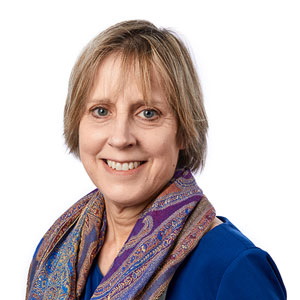A BU Physician Once Examined Assange. What Did She Find?
Sondra Crosby was one of three doctors who checked out WikiLeaks founder and published their findings in early 2018

Wikileaks founder Julian Assange outside London’s Westminster Magistrates Court April 11. Assange spent seven years in the Ecuadorian Embassy in England and was arrested after Ecuador’s president withdrew asylum. Photo by Jack Taylor/Getty Images
A School of Medicine associate professor who specializes in trauma and torture treatment examined WikiLeaks founder Julian Assange with two colleagues approximately a year ago, and they then published their findings in the Guardian, writing that Assange’s “continued confinement is dangerous physically and mentally to him, and a clear infringement of his human right to healthcare.”

The piece by Sondra Crosby, a School of Medicine associate professor of internal medicine and a School of Public Health associate professor of health law, ethics, and human rights, who conducted the physical and mental health exam with two colleagues not affiliated with Boston University, began receiving renewed attention on Thursday after Assange was arrested in England.
He faces extradition to the United States on a charge of conspiring to hack a classified Defense Department computer in 2010.
According to the January 24, 2018, Guardian article, the doctors’ 20-hour physical and mental examination, done over three days, occurred as Assange was “surrounded by credible personal threats from various governments and individuals.” They cited a 2016 UN report on the embassy that found it was “not equipped for prolonged detention and lacks the necessary medical equipment or facilities to provide a reasonable environment for Mr. Assange—a determination with which we concur.”
“Experience tells us that the prolonged uncertainty of indefinite detention inflicts profound psychological and physical trauma above and beyond the expected stressors of incarceration,” the piece stated. “These can include severe anxiety, pathological levels of stress, dissociation, depression, suicidal thoughts, post-traumatic stress disorder, and chronic pain, among others.”
The doctors did not specify their findings about Assange’s physical and mental health because of patient confidentiality, but they wrote that he lacked access to “sunlight, appropriate ventilation, or outside space for over five and a half years.” They said he could not leave the embassy, even for a medical emergency, due to the threat of arrest.
Assange had been holed up for the last seven years in Ecuador’s London embassy, where he received asylum, saying he feared extradition to the United States. But Ecuador evicted him this week, leading authorities in England to move quickly on his arrest, saying he had violated conditions of his asylum arrangement. When he sought asylum, Assange also was wanted in Sweden on a rape allegation; the Swedes later rescinded their warrant for him, but left open the possibility of resurrecting that case.
Crosby is an internal medicine specialist. She was one of the first doctors permitted to examine independently prisoners at the US prison at Guantanamo Bay. She also has examined more than 300 torture victims as medical care director of the Boston Center for Refugee Health and Human Rights.
The two doctors besides Crosby who met Assange and shared the byline on the Guardian story are Sean Love, a Baltimore anesthesiologist, and Brock Chisholm, a trauma psychologist in England.
Crosby has written extensively about her evaluations of trauma and torture survivors. In a piece for Physicians for Human Rights in May 2018, which she also wrote with Chisholm, she argued against President Trump’s nomination of Gina Haspel as CIA director. “What torture has accomplished instead is to make Americans, including our service members, less safe around the world,” their article said. “And perhaps most dangerously, the United States has lost moral authority and negotiating power to confront other dangerous and oppressive regimes, such as Russia and North Korea, on human rights issues.”
In the indictment that was unsealed Thursday in Virginia, Assange was accused of conspiring with US Army intelligence analyst Chelsea Manning, then known as Bradley Manning, back in 2010. The allegation was that Assange helped Manning crack a password so that Manning could illegally obtain secret US military and diplomatic documents, and those documents could be disseminated in a way that would harm the United States.
In court, Assange was found guilty of breaching his bail. He pleaded not guilty to the bail-jumping charge. Jennifer Robinson, an attorney for Assange, said outside the London courthouse that Assange would fight extradition to the United States. Calling his arrest “a dangerous precedent for all news media,” Robinson said he needed medical care because of how he suffered during his time in the Ecuadorian Embassy.
In the Guardian article, Crosby and her colleagues called on the British Medical Association to demand “safe access to medical care for Mr. Assange.”
“It is, we believe, the only correct and ethical course of action,” they wrote, “and we champion the few clinicians who have sought to care for Mr. Assange in these difficult circumstances.”
Comments & Discussion
Boston University moderates comments to facilitate an informed, substantive, civil conversation. Abusive, profane, self-promotional, misleading, incoherent or off-topic comments will be rejected. Moderators are staffed during regular business hours (EST) and can only accept comments written in English. Statistics or facts must include a citation or a link to the citation.